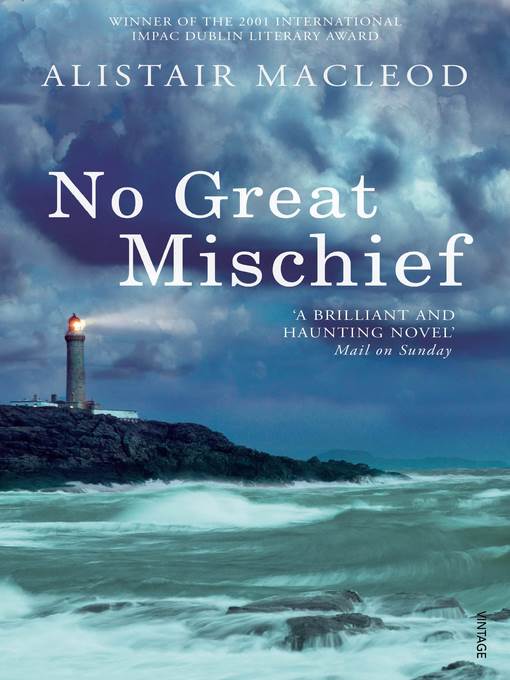
No Great Mischief
- اطلاعات
- نقد و بررسی
- دیدگاه کاربران
نقد و بررسی

Starred review from April 3, 2000
MacLeod, a Canadian of Scottish lineage, has earned a sterling reputation north of the border based on two collections of stories (Barometer Rising; As Birds Bring Forth the Sun), and with his first novel he will only add to that acclaim. Already a bestseller in Canada, No Great Mischief (the title comes from General Wolfe's callous reaction to the death of Highlanders enlisted in Britain's efforts to wrestle Canada from France--"No great mischief if they fall") tells the sprawling story of one Scottish clan, the MacDonalds, who come to Cape Breton from Scotland in the 18th century and struggle valiantly to maintain their pride and identity up through the end of the millennium. The narrative is in the hands of a rather staid Ontario orthodontist, Alexander MacDonald, who comes to Toronto to aid his alcoholic older brother, Calum, who is down on his luck in a shabby rooming house and in need of company and a supply of liquor. The two will eventually drive to their beloved Cape Breton where the family patriarch is buried at the edge of a cliff, and along the way the family saga is relived, retold, recast. Alexander, it turns out, was orphaned at age three, along with his twin sister, when both parents fell through the ice when returning to the lighthouse where Alex's father was the keeper. His three much older brothers were already on their own, fishing off the Breton coast, tangling with French-Canadians in mineral mines, drinking hard in bunkhouses, while the twins are raised in relative comfort by doting grandparents. Calum, who seems to carry the legacy of the original Calum MacDonald (who lost his wife on the voyage from Scotland in 1779, leaving him with six children, to which he would add six more), is the dark light, like a bottle of whiskey, through which MacLeod's account is refracted. What emanates is a loving retrieval of a people's native strategy of survival through history and across a changing landscape. Though at times the narrative is confusing, it is cannily so: there are three Alexander MacDonalds to keep track of; there are familial ties that seem filial, then avuncular and then estranged. But the overall effect is authenticity, and the lack of irony is as bracing as the cold spray of the North Atlantic.




دیدگاه کاربران